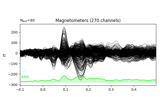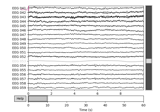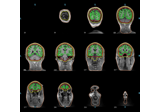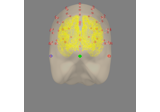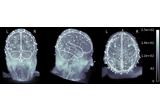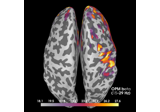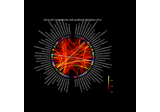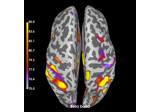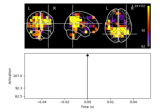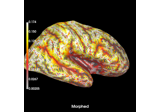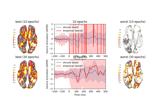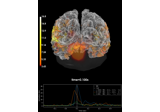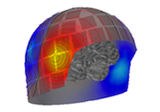mne.make_forward_solution¶
- mne.make_forward_solution(info, trans, src, bem, meg=True, eeg=True, mindist=0.0, ignore_ref=False, n_jobs=1, verbose=None)[source]¶
Calculate a forward solution for a subject.
- Parameters
- infoinstance of
mne.Info|str If str, then it should be a filename to a Raw, Epochs, or Evoked file with measurement information. If dict, should be an info dict (such as one from Raw, Epochs, or Evoked).
- trans
str|dict| instance ofTransform|None If str, the path to the head<->MRI transform
*-trans.fiffile produced during coregistration. Can also be'fsaverage'to use the built-in fsaverage transformation. If trans is None, an identity matrix is assumed.Changed in version 0.19: Support for ‘fsaverage’ argument.
- src
str| instance ofSourceSpaces If string, should be a source space filename. Can also be an instance of loaded or generated SourceSpaces.
- bem
dict|str Filename of the BEM (e.g., “sample-5120-5120-5120-bem-sol.fif”) to use, or a loaded sphere model (dict).
- megbool
If True (Default), include MEG computations.
- eegbool
If True (Default), include EEG computations.
- mindist
float Minimum distance of sources from inner skull surface (in mm).
- ignore_refbool
If True, do not include reference channels in compensation. This option should be True for KIT files, since forward computation with reference channels is not currently supported.
- n_jobs
int The number of jobs to run in parallel (default 1). Requires the joblib package.
- verbosebool,
str,int, orNone If not None, override default verbose level (see
mne.verbose()and Logging documentation for more). If used, it should be passed as a keyword-argument only.
- infoinstance of
- Returns
- fwdinstance of
Forward The forward solution.
- fwdinstance of
See also
Notes
The
--gradoption from MNE-C (to compute gradients) is not implemented here.To create a fixed-orientation forward solution, use this function followed by
mne.convert_forward_solution().
